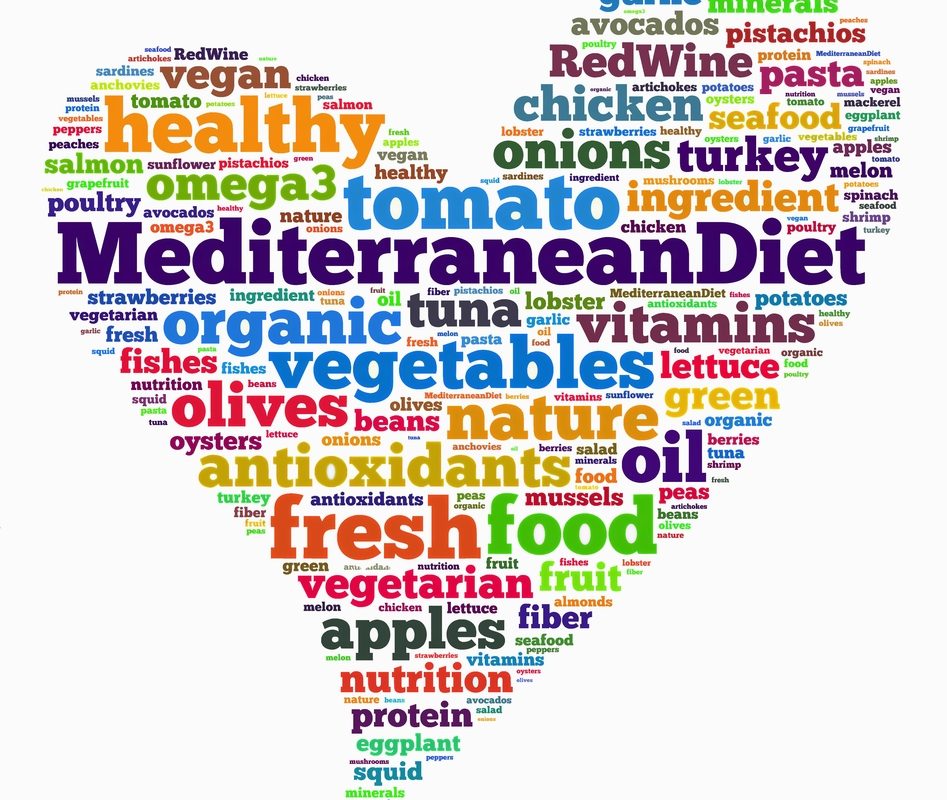You’ve likely heard it before: it’s not a diet, it’s a lifestyle.
When it’s the Mediterranean diet, it’s a lifestyle that can help improve your heart health, fight cancer, prevent diabetes, protect your cognitive health, boost your mood, and keep your weight under control.
The Mediterranean diet was introduced in the 1950s, following an extensive study of what people ate and how they lived in seven countries, Finland, Holland, Italy, the U.S., Greece, Japan, and Yugoslavia. In the countries that followed a Mediterranean diet, studies showed a very low rate of cholesterol. According to Harvard Medical School, “It showed that regions with a low consumption of saturated fat, such as the Mediterranean countries, had a much lower incidence of coronary artery disease than regions with a high consumption of saturated fat, such as the Scandinavian countries.”
What is the Mediterranean diet?
There are no preservatives in a Mediterranean diet. It consists of fresh fruits and veggies, olive oil, nuts and seeds, legumes, whole grains, yogurt, cheese, the occasional glass of red wine, along with plenty of water. Fish and poultry is consumed “moderately.” There is low consumption of eggs and red meat. The focus is on foods and ingredients close to nature, rich in monounsaturated fats, high in fiber, and high in fresh plant foods. Unlike the average American diet, there’s very limited processed foods and sugar.
Can it save your life?
While the main long-term health benefit is protection against heart disease—the alpha-linolenic acid found in fresh olive oil can lower blood pressure and decrease the risk of a sudden cardiac arrest by a whopping 45 percent—studies have shown “eating Mediterranean” can be beneficial in many other ways.
According to the European Journal of Cancer Prevention, “The biological mechanisms for cancer prevention associated with the Mediterranean diet have been related to the favorable effect of a balanced ratio of omega-6 and omega-3 essential fatty acids and high amounts of fiber, antioxidants and polyphenols found in fruit, vegetables, olive oil and wine.”
And there have been studies showing that following a Mediterranean diet might be a natural Parkinson’s disease treatment and a way to preserve your memory and protect cognitive impairment. In one four-year study, participants assigned to the Mediterranean diet maintained stable levels of cognition, whereas the ones advised to follow a low-fat diet experienced a small amount of decline. (Healthy fats like olive oil and nuts, plus plenty of anti-inflammatory veggies and fruits, are known to fight age-related cognitive decline.)
Mediterranean diet tips:
- Eat fresh vegetables, fruit, fish, avocados, and whole grains
- Eat at least a handful of nuts each day
- Try to eat more beans, chickpeas, and peas (a source of protein and fiber)
- Eat sweet potatoes
- Drink smoothies instead of soda
- Enjoy red wine in moderation
- Eat a moderate amount of plain and Greek yogurt, organic milk, and natural cheese
- Use olive oil abundantly for cooking and seasoning
- Focus on high-quality ingredients and high-quality fat
- Be mindful of portions
- Dramatically limit or avoid pastries, potato chips, baked goods, processed meats, processed foods, and refined carbohydrates
- Aim for one serving or less of cured ham, red meat, and fatty cheeses per week
- Sit down and enjoy your meal! (Even better when enjoyed with friends and family.)
Experiment eating the Mediterranean way with the following Mayo Clinic recipes.

Comments are closed.